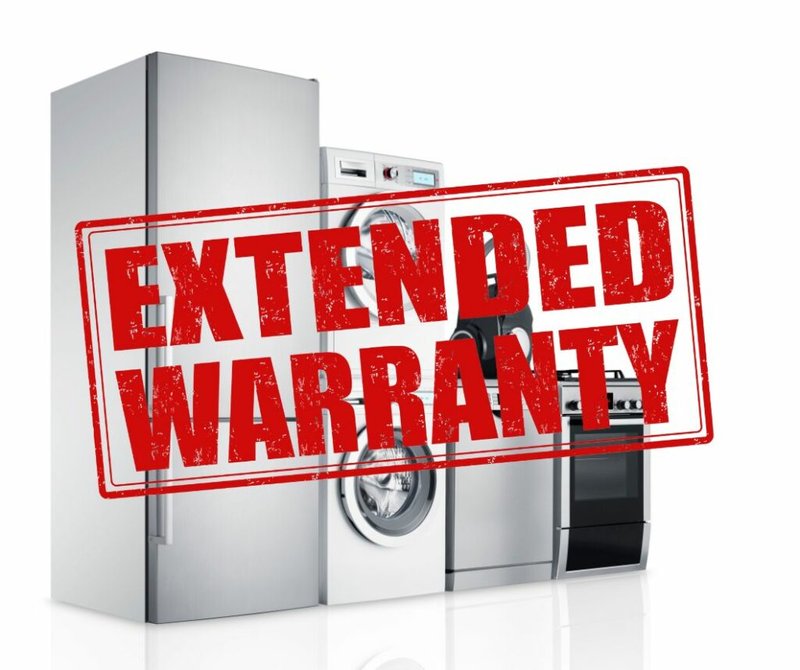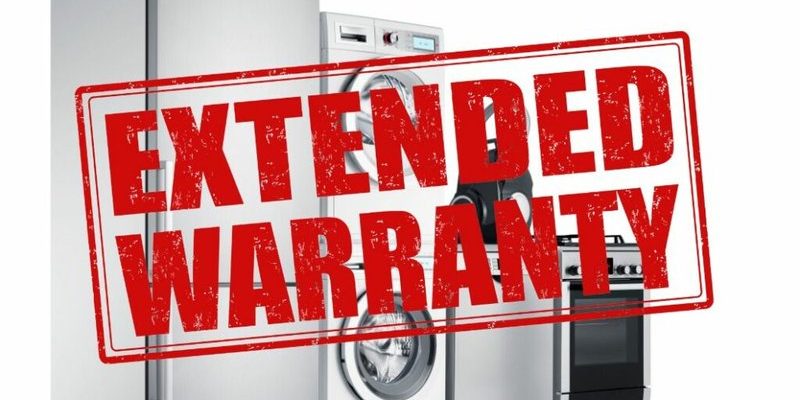
Let me explain with a simple analogy: imagine buying a reliable car with a standard warranty. An extended warranty is like buying extra coverage for repairs once that original coverage runs out. Sometimes, it’s a lifesaver. Other times, you might never need it. GE ovens and ranges are quality appliances, but they aren’t immune to the occasional hiccup. So the question is, should you take the plunge on that extra protection, or trust that your GE appliance will stick around without costly repairs? We’ll take a deep dive into the pros, cons, and everything in between.
How GE Ovens and Ranges Typically Fare Without Extended Warranty
Honest truth: GE ovens and ranges are generally built to last. They come with a standard manufacturer’s warranty—usually covering parts and labor for a year or so. During this period, if something goes wrong, GE steps in to fix it without extra cost. But what happens after that initial coverage expires?
Here’s the thing: ovens and ranges are complex machines. They contain sensors, electronic control boards, heating elements, and sometimes remote controls (yes, some models have smart features you can sync to your phone). Any one of these parts can fail eventually due to normal wear and tear. For example, you might find yourself troubleshooting a blinking error code or needing a reset after a power surge. If a control board goes kaput or a heating element burns out, repairs can be costly.
Some parts are easier and cheaper to replace than others. A blown heating element won’t break the bank, but replacing an entire control board might set you back a few hundred dollars. So without an extended warranty, you’re essentially betting on your luck and willingness to DIY a bit or shell out for repairs when the time comes.
What Does a GE Extended Warranty Actually Cover?
You might be wondering what you’re really paying for with an extended warranty on a GE oven or range. Typically, these plans cover repairs beyond the manufacturer’s original warranty—often for several additional years. This can include parts, labor, and sometimes on-site service.
Think of it as a way to keep that “factory fresh” peace of mind rolling long after the free coverage ends. If the control panel stops responding, the oven won’t heat, or your range’s remote features have syncing issues, an extended warranty often picks up the tab. Some plans even cover “wear and tear” failures that standard warranties exclude.
But—and here’s a key point—every warranty has exceptions. Normal maintenance like cleaning burners or replacing batteries in a remote usually isn’t covered. Accidental damage or misuse? That’s often out of scope too. Always look carefully at what’s included and excluded before signing up. The last thing you want is to pay extra and then find out an annoying problem isn’t covered.
Cost vs. Benefit: Crunching the Numbers
Let’s get real about money, because that’s usually what makes or breaks this decision. Extended warranties for GE ovens and ranges typically cost a couple hundred dollars, depending on the model and coverage length. You’re basically betting that within those extra years, your oven won’t need a repair costing more than what you paid for the warranty.
Statistically, many GE appliances run smoothly beyond the first year without major issues. If your oven is used lightly, say mostly baking and reheating rather than heavy daily cooking, you might never need that extended coverage. On the flip side, families that cook heavily or own older models might face repairs sooner.
Here’s a helpful way to think about it:
| Scenario | Extended Warranty | No Extended Warranty |
|---|---|---|
| Minor repair needed (e.g., element replacement) | Usually covered with no extra cost | Pay out of pocket (~$100-$150) |
| Major repair (e.g., control board replacement) | Covered; possibly no additional fees | Can cost $300+ plus labor |
| No repair needed | Warranty cost is sunk cost | No extra cost |
So if you tend to keep appliances for the long haul, the warranty could be a smart hedge. But if you’re likely to upgrade your oven or range in a few years, paying extra might not pay off.
Common Repairs and Troubleshooting Issues with GE Ovens
Sometimes, appliances don’t fail outright—they just throw a fit. Maybe your GE oven displays a weird error code, or the control panel refuses to respond unless you perform a reset. These little glitches can feel like puzzles without a solution.
Here are a few common hiccups people face with GE ovens and ranges:
- Control board failures: The “brain” of your oven can malfunction, causing everything from erratic temperature readings to total shutdown.
- Error codes & resets: Some issues are just software or sensor glitches that you can fix with a simple power reset or syncing the control panel again.
- Heating element burnout: The most common physical failure where your oven just won’t get hot.
- Remote syncing problems: For smart ranges, remote app connection issues can annoy, especially when you rely on remote start and monitoring.
The reality? Some problems are quick fixes you can DIY with online guides, but others require professional repair. With an extended warranty, you can call in the experts without sweating the repair bill.
Alternatives to Extended Warranties: DIY & Third-Party Repairs
If you’re on the fence about an extended warranty, you might consider alternatives. Honestly, some DIY troubleshooting and simple repairs are surprisingly doable.
For instance, many GE ovens allow users to perform basic resets to clear error codes, or replace heating elements with a few tools and patience. If you’re a bit handy, tutorials on syncing remotes or replacing batteries in smart oven remotes save time and money.
Then there’s the option of third-party repair services. Sometimes they offer cheaper rates than authorized GE techs, and might even cover out-of-warranty work. The trade-off is potential delays or warranty invalidation.
The key is weighing your comfort level. If the thought of fiddling inside an oven’s control unit gives you the creeps, paying for peace of mind with an extended warranty could be the better choice.
When Does an Extended Warranty Make the Most Sense?
Here’s a quick checklist to help you decide if an extended warranty for your GE oven or range is a good idea:
- You plan on keeping your oven or range for 5+ years.
- Your model has smart features that are costly or complicated to repair.
- You want to avoid surprise repair costs and value convenience.
- You don’t feel comfortable troubleshooting error codes, resets, or syncing issues.
- You use your appliance heavily and want to guard against wear and tear.
On the flip side, if your oven is relatively simple, you’re tech-savvy, or you’re the type who upgrades appliances every few years, skipping the extended warranty could save you money.
Wrapping It Up: The Bottom Line on GE Oven Extended Warranties
So, is an extended warranty worth it for GE ovens and ranges? Honestly, it depends on your personal risk tolerance, how you use your appliance, and your budget. GE stoves are solid performers, but like any fancy kitchen gadget, they’re not invincible. An extended warranty can offer a comforting safety net, especially for folks who dread unexpected repair bills or complicated breakdowns.
On the other hand, if you’re comfortable troubleshooting basic issues, don’t mind calling a repair pro only if necessary, or plan to upgrade soon, you might save more by skipping the warranty altogether.
At the end of the day, it’s about knowing your oven, your cooking habits, and your peace of mind. Think of the extended warranty like a cozy kitchen apron—sometimes it saves you a mess, and other times, it just sits quietly until you really need it.
“An extended warranty on your GE oven is less about if it will break, and more about how much you mind when it does.”
